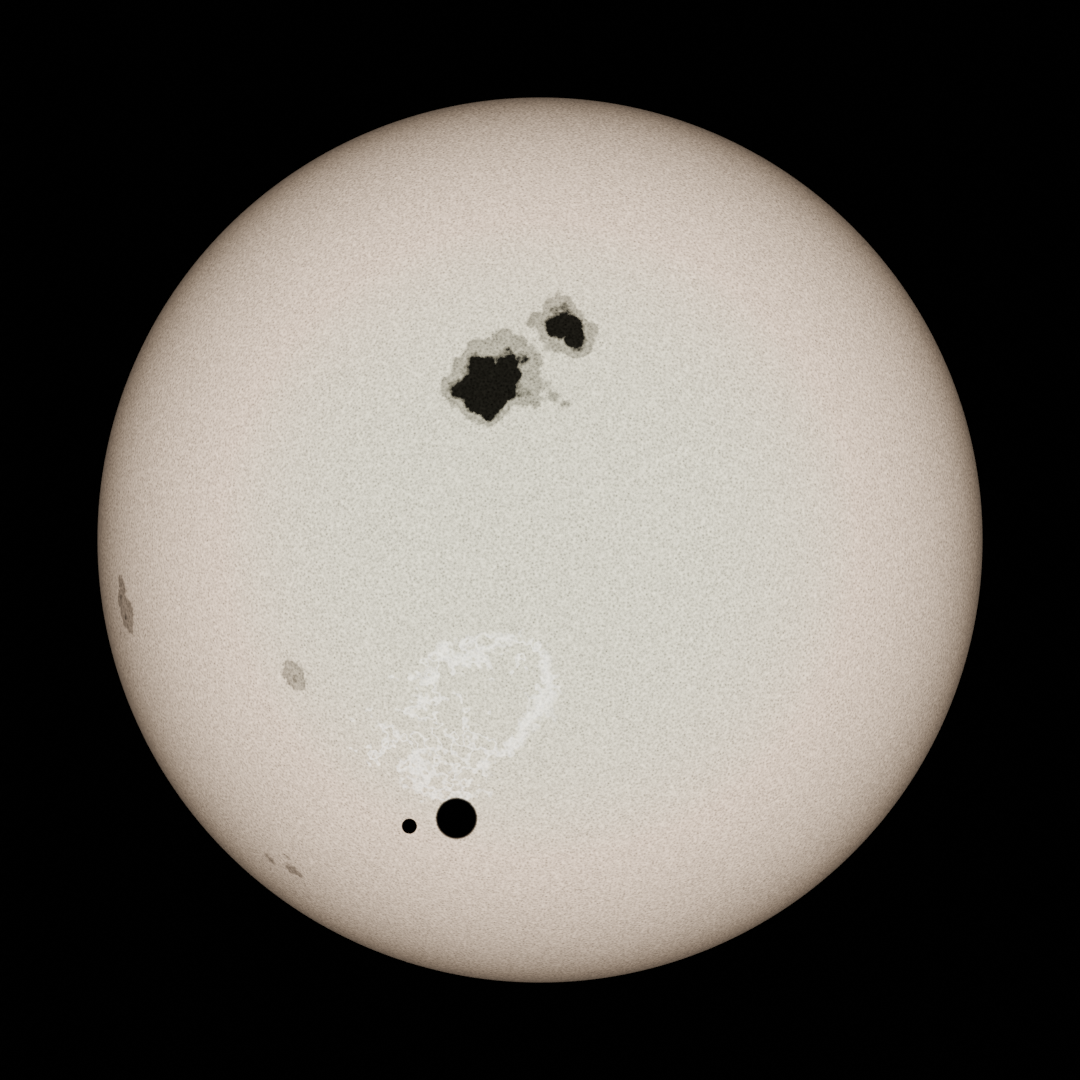Aurinko
Aurinko

Observation data
| Spectral classificaton | K4.9V |
|---|---|
| Visual magnitude | −26.56 |
| Absolute magnitude | +6.68 |
| Angular size | 0.82° |
Orbital characteristics
| Mean distance from galatic core | 17,200 light-years |
|---|---|
| Velocity | 110 km/s about Galactic Center |
| Galactic period | ~295 million years |
Physical characteristics
| Mass | 0.65 Msol |
|---|---|
| Age | 10.2 billion years |
| Radius | 0.708 Rsol |
| Luminosity | 0.179 Lsol |
| Density | 1.828 Dsol |
| Temperature | 4460 K |
Aurinko is the star at the center of the Aurinko System. It is slightly smaller and cooler than Sol, but it is still one of the most important sources of energy for life in the Aurinko System. It has also been subjected to much research due to the rare "K" stellar classificaton.
Aurinko orbits the Triangulum Galaxy at a distance between 17,000 to 21,000 light-years. It has a diameter of around 985,000 km and a mass of about 0.65 that of Sol, which makes up about 97% of the total mass of the Aurinko System.
Aurinko is a K-type main-sequence star (K4.9V), also known as an orange dwarf. It is approximately 10.2 billions years old, and will burn for the next 20 billion or more years.
Nomenclature
Aurinko is the Finnish word for sun. Most objects in the Aurinko System have Finnish names as the system was discovered by a Finnish astronomer.
General characteristics
Aurinko is a K-type main-sequence star that makes up about 97% of the mass of the Aurinko System. It has an absolute magnitude of around +6.68, about the same brightness as the average brightness of all the stars in the Triangulum. It rotates rougly once every 30.7 days at the equator with reference to the stars. This rotation was thought to be rougly 10-20 times faster during its early life, but due to magnetic braking, it has slowed to current day periods.
Location
Within 10 light-years of Aurinko, there are several stars, most of which are M-type stars. The closest star system is AS017 with the unofficial name Stalkkeri. It is about 0.97 light-years away from Aurinko and is the only G-type main-sequence star within 10 light-years of Aurinko. The two stars are not in a binary orbit, but various debris from the respective systems will be noticable in the future. No habitable zone planets have been found around Stalkkeri.
Aurinko is located near the center the d'Arrest local cloud, which lies within the Dreyer bubble, the latter of which is the result of multiple recent supernova events. Multiple nebule exist near the region with the closest being NGC 592, which is 227 light-years from Aurinko, and was home to four Wolf-Rayet type stars.
